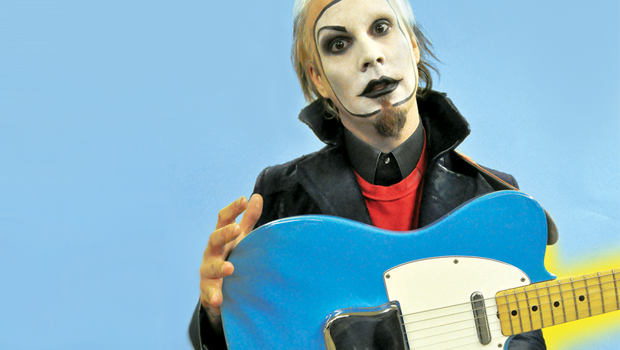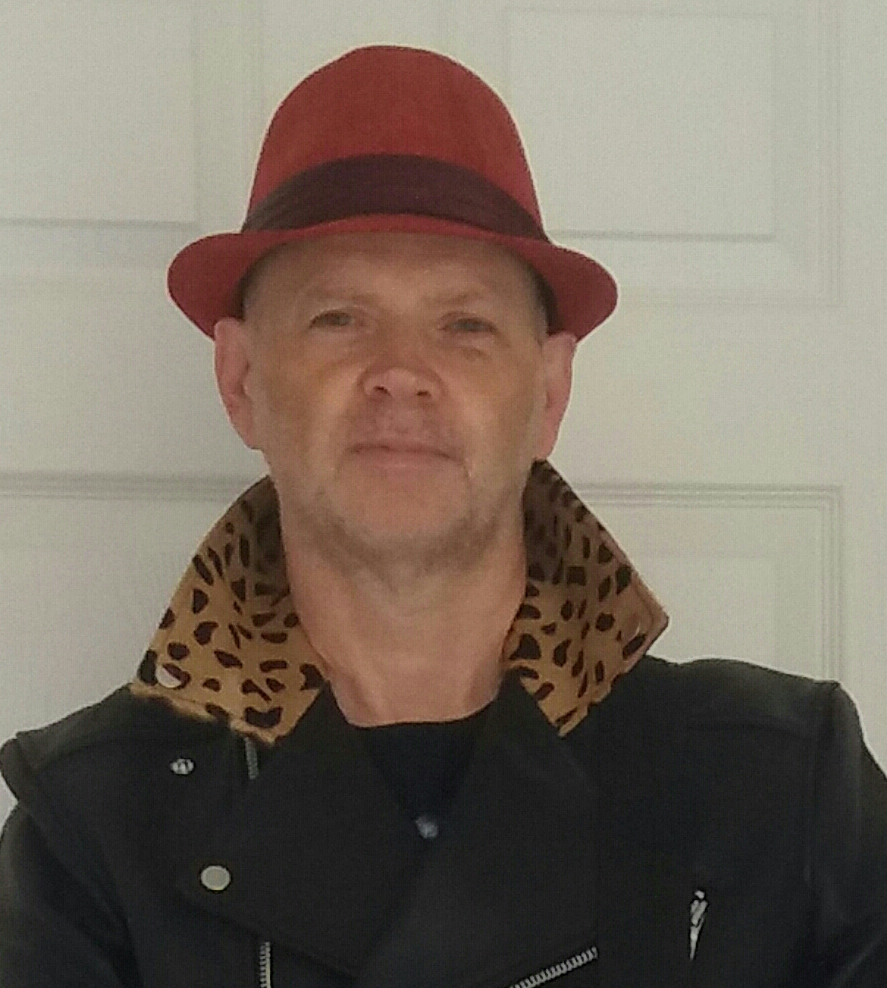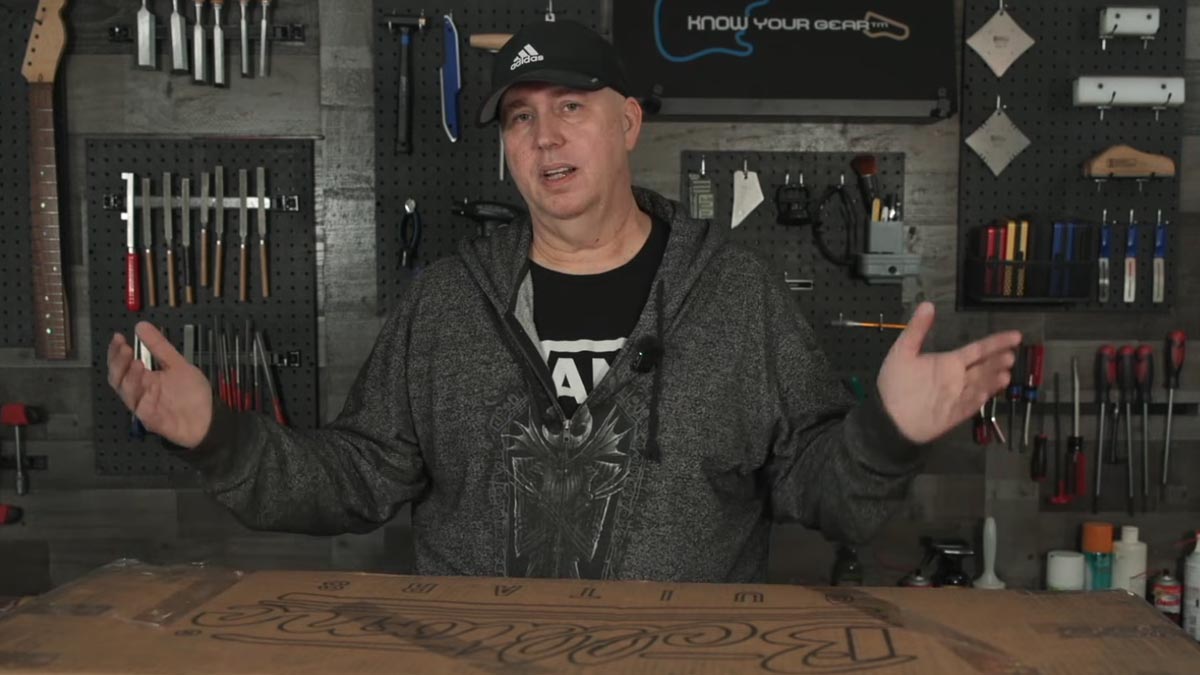John 5: "I play so much guitar that it might not even be healthy - and I’m not joking"
The Tele master on Invasion, his relationship with Marilyn Manson and the joys of self-sufficiency
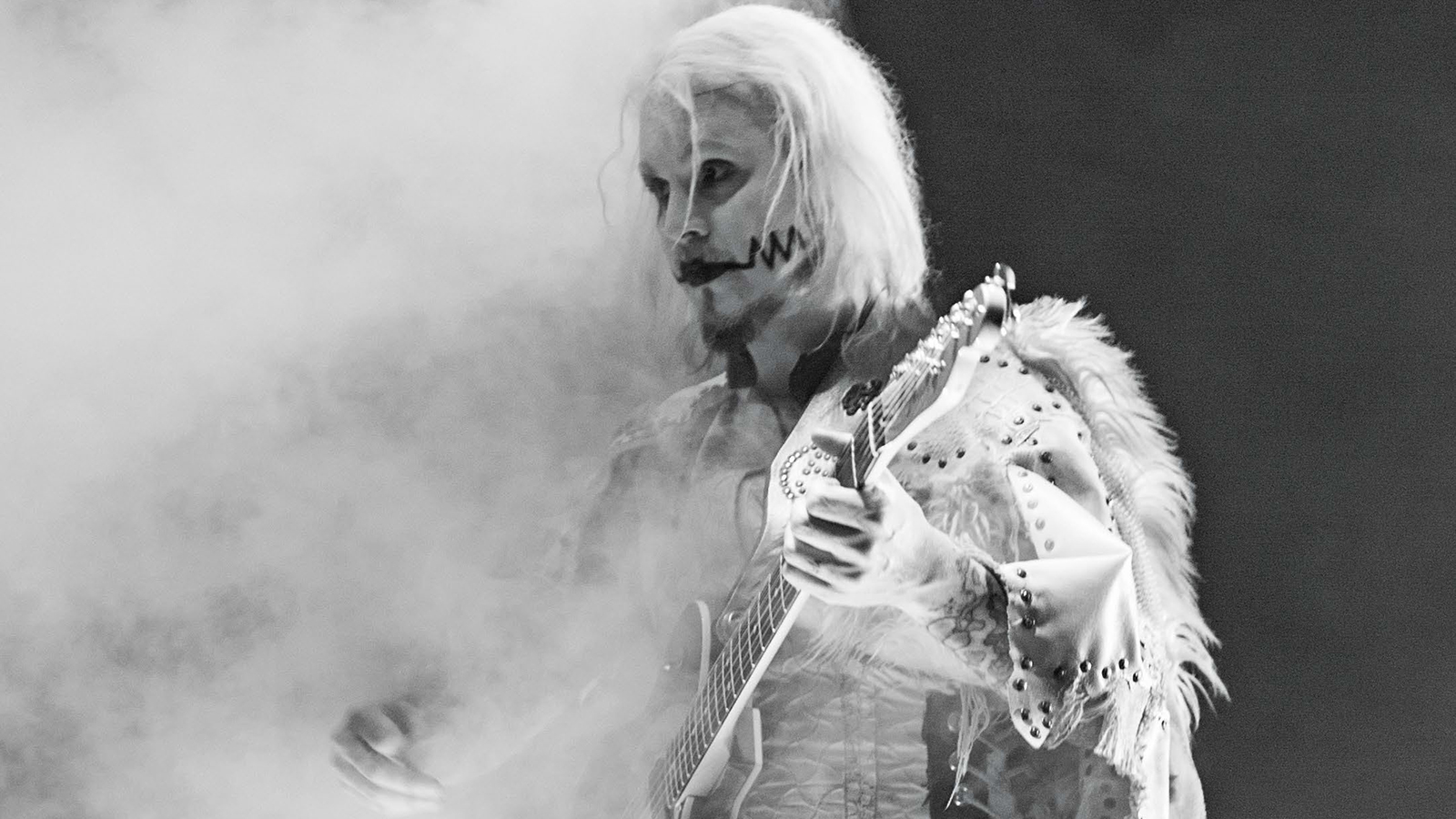
John 5 might just be the most subversive artist working in the music business today. Yes, he rocks the corpse-paint vibe and has spent a goodly chunk of his career playing electric guitar with master of controversy Marilyn Manson and his current bandleader, Rob Zombie, so the obvious conclusion is that he’s working the 'horror metal' groove to the max.
But even the most rudimentary investigation into his solo albums and videos reveals a very different reality. Sure, you’ll uncover some scary monster sounds, serial-killer-inspired titles and sound clips, and an eerie, unsettling sense at work in many of the songs. But what you’ll also find is some of the most sublimely gnarly country-style picking this side of Robert’s Western World in Nashville.
To scores of metalheads, country music is something their grandparents might dig. John 5 destroys that tired old preconception with some of the most incendiary shredding that’s ever been performed on a Tele - or any axe, for that matter.
John took time out from his relentless schedule to discuss his new album, Invasion, his career to date and how he’s managed to steer a successful and lucrative course through the difficulties of monetizing a career in a ravaged music industry.
You started out as a session guitarist playing with a wide range of artists, many of whom don’t spring to mind when we think of John 5. Were they the 'paying the bills' kind of gigs?
"Well, it was partly a love of music and also that I was a fan of those artists; I’ve been a big fan of everyone I’ve worked with. I also wanted to be able to make a living from playing guitar. It’s worked out well for me in that I’ve gotten to play with so many people whose work I’ve known so well through being a fan of their catalogs anyway."
The first thing that really upped your profile was David Lee Roth’s DLR album, released in 1998, which has been unfairly overlooked in his back catalog. Perhaps because at that time Roth’s career was in a bit of a dip. Do you have fond memories of those sessions?
All the latest guitar news, interviews, lessons, reviews, deals and more, direct to your inbox!
"Yes. It was done so fast; we got in and we played it live. I don’t think there’s any overdubs at all. We only worked on it for a few weeks. It works really well for the music, and I think it has a real live sound."
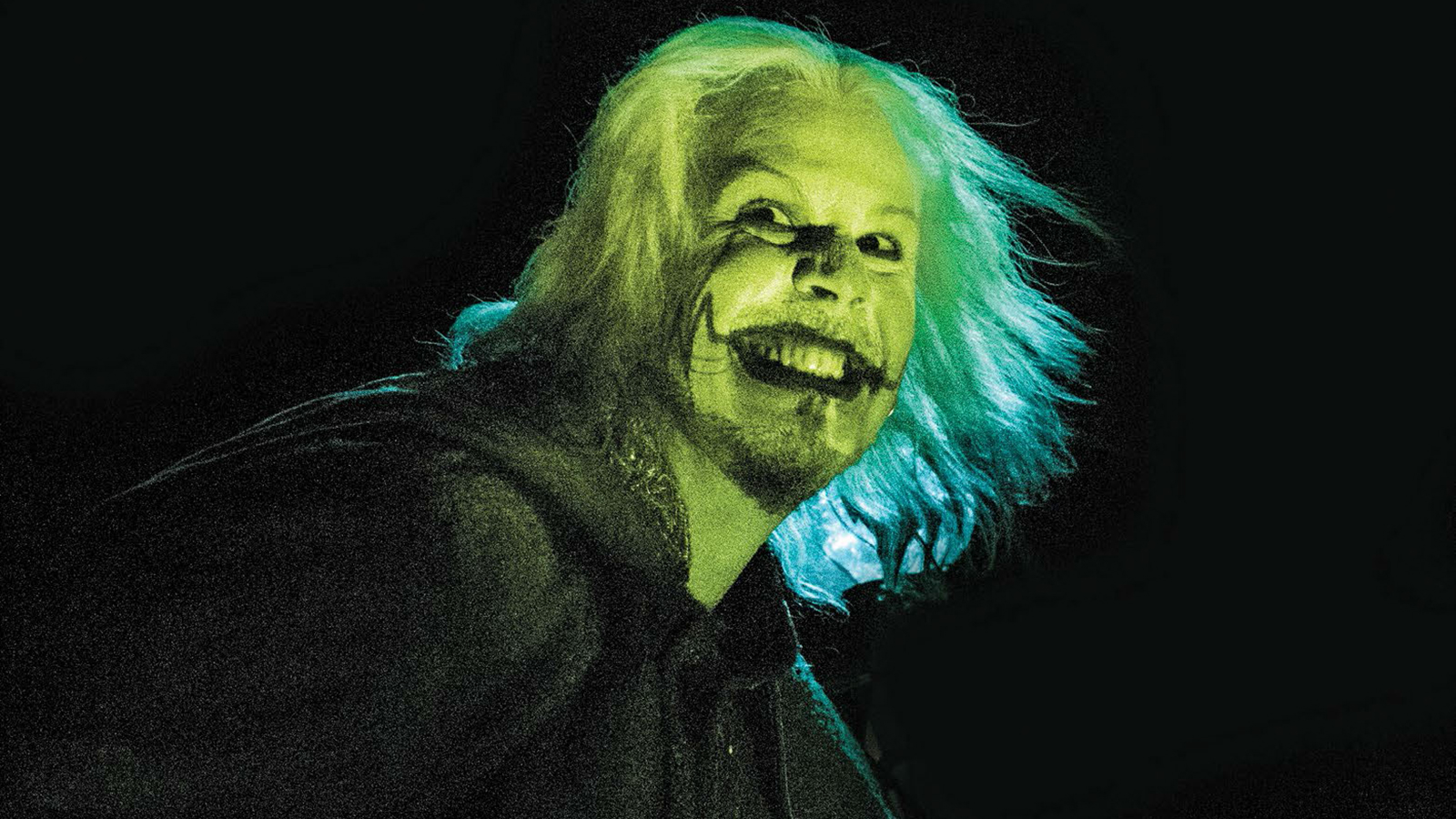
There are some great guitar lineages - the John Mayall line of Clapton/Green/Taylor, the Ozzy line of Rhoads/Lee/Wylde and the David Lee Roth line of Eddie/Vai/Becker. That’s some great company for a guitarist to be in, isn’t it?
[Laughs] "Yes, you’re right — I hadn’t thought of it that way. It really is good company to be in. I’m a big fan of all of those guys. I’m always thinking I’m very happy and fortunate to be in the line of work I’m in."
Your next band was Marilyn Manson, which was definitely a profile raiser. Was that a good experience?
"Absolutely. Manson - you gotta give credit where credit is due - he gave me my name. It was an incredible period; it only got weird near the end. It’s funny how time moves on and everybody apologizes, you know? I see him all the time now when I’m on tour with Rob Zombie. In fact, I’m just about to go to his birthday party.
"There were some very interesting career lessons to be learned. I think about what I’ve done in my career and it’s shocking to me because all I wanted to do, really, was to be a session musician and have a family and come home every day. I don’t like traveling much. I never thought about a career as a rock musician at all."
You decided to stick with the John 5 name after leaving Manson.
"Well, I use my buddy Ace Frehley as an example; when he left Kiss he didn’t go back to Paul Frehley. I thought, 'I’m proud of the name and I’m gonna run with it.'”
There’s a nice ambiguity as well, isn’t there? The 'John 5' almost sounds biblical and yet…
"That’s right! And that ambiguity fits so well with what I’m doing musically."
You teamed up with Rob Zombie next. Was he somebody you already knew?
"I was always a big Rob Zombie fan. I listened to him in my car and loved his songs, his music and his lyrics. I was doing a benefit gig and I got a chance to play with him. I said, 'If you ever need a guitar player, let me know.' He called me up and he said that initially he was only gonna be doing a short run of gigs before concentrating on movies, but 15 years later we’re still playing together."
Given the list of great hookups you’ve got under your belt, is there anyone still on a wish list that you’d like to work with?
"I don’t know if this is a good thing or a bad thing, but I’m so content and happy with where my life is now that I’m happy with whatever comes around the bend. I just wrote with Mötley Crüe. Whenever any opportunity comes along, I always treat it as something really special."
Given the massive range of styles in which you write, for yourself and other artists, including acts as diverse as Rod Stewart and Lynyrd Skynyrd and even working with someone as unexpected as Ricky Martin, where is the inspiration coming from? Are you always stockpiling ideas, or are you a work-to-order type?
I only do it for the love of music and the love of the guitar, not for the audience
"It depends on the situation. If I come up with something interesting, I might think this sounds like a chorus or a riff, etc. I don’t necessarily stockpile songs, but I have ideas on hand.
"If I go to write with someone like, say, Paul Stanley or something and he says, 'Give me something like Shandi,' I’ll know what he means. Whoever I work with, I’ll always do my homework, so I’ll know the shorthand for what they mean and what they’re looking for in a song when I collaborate."
Have you ever considered adding your own vocals to your albums, maybe to broaden the audience for your work, since the instrumental field can sometimes be a bit restrictive in terms of its reach?
"I have a singer with Rob Zombie. That covers my bases. I love what I do in doing the instrumental work, plus I’m in a huge rock band as well. Everything I do is from the love of music. That’s my only motivation: I only do it for the love of music and the love of the guitar, not for the audience."
What I love about your music is the juxtaposition of the familiar and apparently safe against a backdrop of something much more sinister. It makes for a very unsettling feel, kind of like Tiptoe Through the Tulips playing out in the movie Insidious, for example.
"That’s something I like to do, to mix things up. Actually, you mentioning Tiptoe is interesting. It’s amazing how wide and unexpected music could be at one time, that someone as left-field as Tiny Tim could become successful. I grew up with so many different sounds in music - I love country, I love metal, I love shred - so why can’t I mix all that together, even in the same song, ya know?"
What do you listen to at the moment, and what are your key go-to albums?
The influence of Kiss is so underrated. They influenced so many people to play guitar
"That’s a great question. I love Steely Dan and the Aristocrats - great music. I’m listening to them a lot at the moment. All-time go-to albums would be Jimi Hendrix’s Are You Experienced, Yngwie’s Rising Force, Steve Vai’s Passion and Warfare, the first Van Halen album and Love Gun by Kiss.
"Kiss in particular is one of the things that made me want to play guitar. The influence of Kiss is so underrated. They influenced so many people to play guitar. The guys in Kiss are incredible songwriters and musicians. No band just makes it on image without songs."
I’m gonna throw a couple of less-celebrated Tele players at you for your take: Danny Gatton and Pete Anderson.
"I love Danny Gatton; he was a genius and a major influence, he was really something else. I hope people reading this might look him up. And Pete Anderson, what he did in particular with Dwight Yoakam, where he’d take the solo off in a totally unexpected direction, he really raised the bar on country guitar playing - again, someone whose work has had an impact on me.
"Incidentally, although he’s not a Tele player, if anyone reading this wants an insight into my influences, they should definitely check out Joe Maphis. I’ve taken a lot from him, too."
You’re obviously a technique monster, but you never let technique get in the way of the melody - and you’re not afraid to play something simple if it works. There’s a guy on YouTube who has a clip on the 10 easiest riffs to play on guitar, kind of sneering at the likes of Satisfaction and Smoke on the Water. He’s really missed the point; the genius is in creating a great riff, not in how hard it is to play.
"Oh my god! That guy wishes he wrote those riffs. Can you imagine if you’d written those riffs? Man, you’d be living in a castle, not hosting a YouTube site. I’m influenced by shred and by country and by great music, regardless of how hard it is to play.
When I started, I thought, 'Well, we already have Steve Vai and Yngwie Malmsteen; since I love rock and I love country, why don’t I just meld the two together?'
"All of my influence is gonna come out through my music. People get very hung up saying, 'It sounds like this, it sounds like that.' Everybody is a product of their influences.
"What I’ve never understood is why people get hung up on something sounding a bit like something else. It’s your influences who make you what you are, then it’s what you do with those influences. When I started, I thought, 'Well, we already have Steve Vai and Yngwie Malmsteen; since I love rock and I love country, why don’t I just meld the two together?'”
You’ve been a Telecaster player for years, and I remember you had an ambition to own a model from every year of production. Have you achieved that?
"Well, I have now achieved the aim for one from each year, and now I’m just gonna enjoy them. It’s a bit of a silly thing, but it’s a lot of fun. I’ve always loved collecting. The Tele is a country guitar, but it is our first solidbody guitar. It’s a working man’s guitar. It’s not an easy guitar to play, but it’s definitely worth the effort."
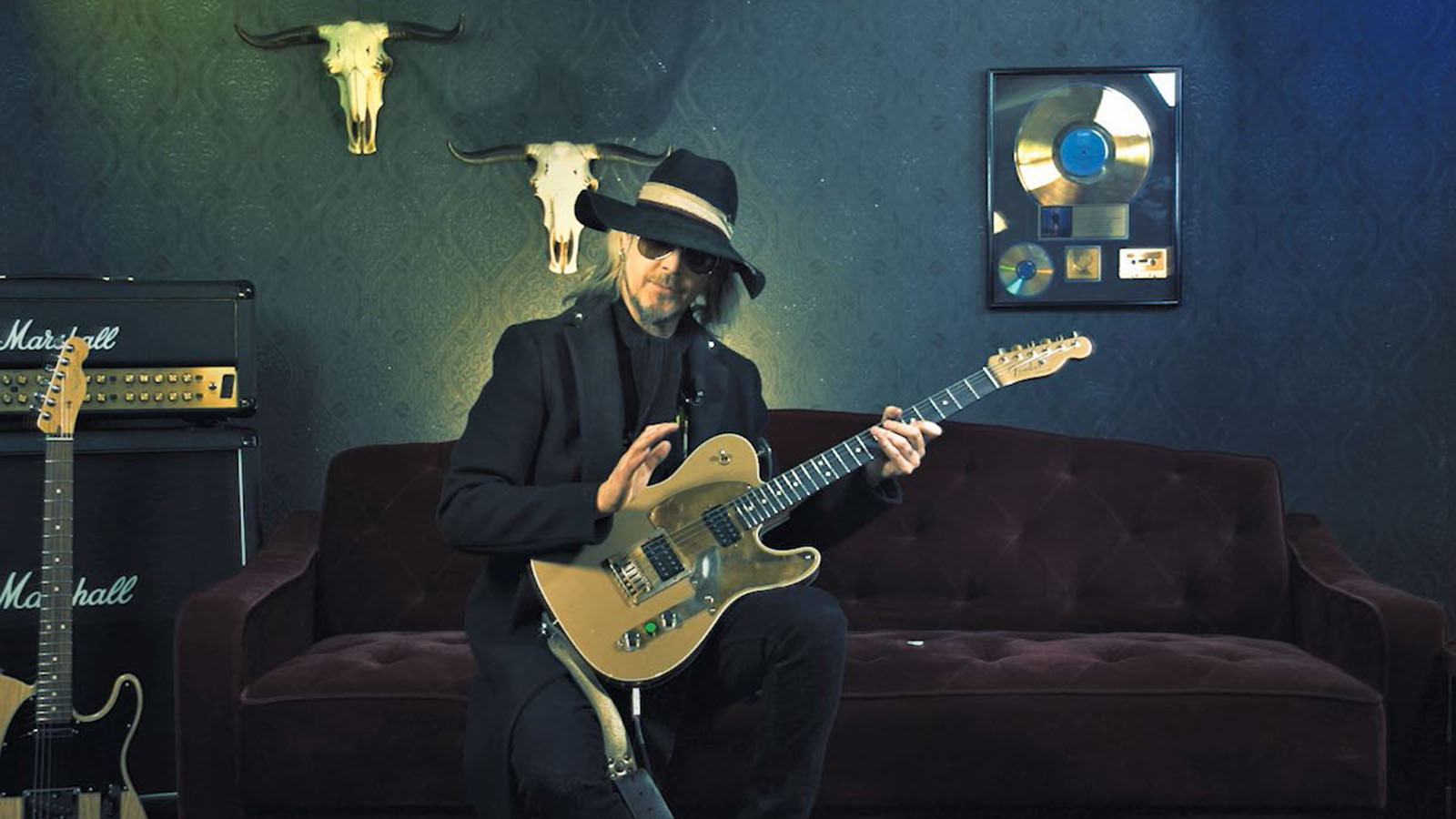
Given how much of a Tele obsessive you are, have you ever investigated the possibilities of a B-bender-equipped Tele?
"I’d love to investigate that at some point, but I’ve never owned a B-bender. I find I can achieve everything I’m looking to do at the moment with behind-the-nut bending. I’ve got a track on the new album called Cactus Flower that’s all behind-the-nut bending, but unusually perhaps, rather than tuning to an open chord to facilitate those pedal steel sounds, this is all in standard tuning. It sounds really cool."
I was watching a clip of you performing a solo version of Behind the Nut Love and I could see the possibilities for using a looper pedal there. Have you ever considered that option?
"That’s another great question. My producer just got me a looper. You’re right, Behind the Nut Love would sound amazing with that layering. That’s a great idea."
What else can you tell me about your new album, Invasion?
"Well, besides Cactus Flower, there are a few new departures for me. On one track I use a mandolin, and on I Am John 5, I use a talkbox. There’s a track called Crank It, which is kind of an industrial-sounding dance tune.
"We have DJs filling arenas; there’s a certain part of what they do that is very hooky. I thought just imagine if there were a DJ performing this kind of heavy stuff - people would go nuts - but then it transitions into that dark Metallica vibe.
"I’ve got another track called Howdy that comes from Minnie Pearl on Hee Haw. That show inspired me to play guitar, so there’s a lot of love for that TV show, and it’s also a tribute to Roy Clark. There’s a couple of real fun videos for Zoinks! and I Am John 5 that people should check out - a real Scooby-Doo angle."
Do you find it hard to survive in these difficult times for musicians?
"I pay for everything myself. I finance everything. I don’t have a record company, I pay for my own videos, my touring, the merch, the hotels. I don’t get any help from anyone. I’m totally self-sufficient.
"Sometimes managers will call me and say they want to work with me. I say what can you do for me that I’m not already doing? Whatever they suggest I always already have. If somebody had something they can really offer me that I can’t do, then I’d love for someone to take the load off. I’d love for that day to come, but it hasn’t so far.
Here’s the truth: I make way more money not being with a record company than I did before, and that is before streaming and iTunes impacted
"Here’s the truth: I make way more money not being with a record company than I did before, and that is before streaming and iTunes impacted anyway. Everything is obsolete now, which is wonderful in a way.
"You can have the largest store of music in the palm of your hand; people have to understand it will never go back to the way it was. You’re never gonna beat it, so you have to learn how to work with it. You can be the biggest artist in the world, but there’s no record stores, there’s nothing. You gotta work with what you got.
"Luckily, I like to work with what I got. I just heard that FM radio is gonna go away. Eventually everything will be digital. It makes sense. It’s great how the world evolves - you just have to evolve with it."
You have a great work ethic, and it seems you’re always doing something. What drives you to work so hard?
"I feel so lucky to be able to make a living playing the guitar. I play every day. I play so much guitar that it might not even be healthy - and I’m not joking. I was playing just before you called, and I’ll be playing again as soon as I get off the phone.
"I do my instrumental work because I love it. People ask me, 'Why do you play these small places?' Because I love it. I love meeting people, hearing what they have to say, to see the expressions on their faces. I hopefully influence and educate people on different kinds of music and guitar players. I think it’s a wonderful opportunity to spread what I love to people. I couldn’t ask for anything more than I’ve got."
Mark is a freelance writer with particular expertise in the fields of ‘70s glam, punk, rockabilly and classic ‘50s rock and roll. He sings and plays guitar in his own musical project, Star Studded Sham, which has been described as sounding like the hits of T. Rex and Slade as played by Johnny Thunders. He had several indie hits with his band, Private Sector and has worked with a host of UK punk luminaries. Mark also presents themed radio shows for Generating Steam Heat. He has just completed his first novel, The Bulletproof Truth, and is currently working on the sequel.
